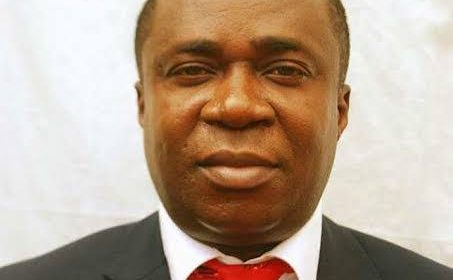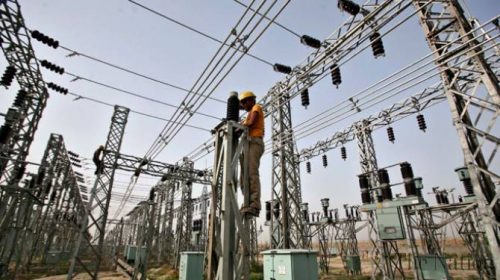#ENDSARS Movement: the Root of the Current Nigerian Youths’ Contagious Courage
By Fadumo Abiodun Paul — Up till a few days ago, it was correct to say “Nigerian youths are cowards”. Some few critical Nigerians have written in the past about the near-total lack of courageous men in our country after the death of Fela Anikulapo Kuti, Funmilayo Ransome-Kuti and Ken Saro-Wiwa.
It is common knowledge that the current political elites and those who have been at the corridor of power in the last 2-3 decades have certain characteristics commonly, it includes corruption, incompetence, lack of vision and ideas, pseudo-democratic politics, oppressive tendency, sumptuous lifestyle and politricks – all at the expense of the largely poor masses. These peculiarities are no news to Nigerians, we mostly console ourselves by joking about it. For instance, Nigerian legislators are alleged to be among the most paid lawmakers in the world, despite being the country with the highest number of extremely poor before COVID-19.
Normally, one would expect the current civil rebellion by the Nigerian youths tagged hashtag End Sars to have been a recording event in our country. But, amazingly, we have been relatively cooperative with and submitted to our oppressors for decades. Our age-long complacent attitude was inherited from the generations before us, but for what is currently happening – we were well on the path of transferring the same to the coming generation.
On 14th November 2019, I wrote an article titled “Culture of Collective Silence in the Face of Injustice” published by Sahara Reporters. Yesterday 16/10/2020, I attended an online town hall meeting tagged “Why does the culture of silence thrive in Nigeria?” organized by @Aisha Yesufu. Although, many young Nigerians are currently protesting (both online and offline), a protest which has metamorphosed into a movement.
There are two main reasons for this article: 1. To set the history or record straight. 2. To attempt to question: how did Nigerians suddenly go from being contented cowards to the point of staging a revolutionary leaderless peaceful protest (#EndSars movement)? This is an important exercise and I consider myself privileged to be one of those who will document this part of our historic moments so that the upcoming generations will have access to an authentic account regarding some of the main events which led to what may be Nigerian 21st-century revolution, especially knowing that our generation was denied the knowledge of history. Plus, you can be sure that the conventional media will not report this.
Note, according to the Wikipedia report, the #ENDSARS hashtag had up to 28 million tweets between (9–11 October 2020), and people are still protesting and making demands on the street and online as I type these words despite PoliceNGand hired thugs attacks on the peaceful protesters.
There is so much information online about Omoyele Sowore, if you are interested in knowing the man before October 1st 2020, I recommend that you focus on video contents rather than articles or comments written by faceless paid bloggers to roast the man alive.
About two weeks before the RevolutionNow October 1st Protest (Nigerian IndependenceDay), I was privileged to have been added to a WhatsApp group which was used for the planning and execution of the protest. Note that this is not an attempt to ascribe an undue credit to the man, certainly for #EndSars movement, and I have not had any direct or indirect conversation with him even since before the October 1st protest. If you know me, you will understand that I am sincere to a fault, but I have decided to take up this responsibility after three days of hesitation, I have decided to focus on it significant to history.
While researching for this article, I had one cumbersome puzzle, that is, WHO STARTED THE HASHTAG (#ENDSARS), that has metamorphosed into what we are currently seeing – just after about eleven days? I went through hundreds of web pages on Twitter and Facebook. I observed that many people accused Sowore of attempting to take credit for #ENDSARS, but he does not appear to want it (based on his interview with @TundeEdnut). In the end, I believe that the hashtag seems to have existed long before 2020 but it came alive again on October 3rd after a boy was allegedly shot dead by SARS at Ughelli, Delta State. An eyewitness (@iam_bussie) tweeted the incident using the hashtag, thereafter, @segalink and then a few of the RevolutionNow protesters also started using it. On the 5th October, Omoyele Sowore called for and had a zoom meeting with some #RevolutionNow protesters and the theme of the meeting was #ENDSARS.
Now, let us examine possible relationships between #RevolutionNow and #EndSars. Punch.ng reported on October 1st that 30 #RevolutionNow protesters were arrested in Lagos. They were not released until October 6th. #ENDSARS began to gain momentum as more and RevolutionNow protesters saw reasons to use it especially because of their comrades who were in police custody because Lagos state used judicial bureaucracy which prevented lawyers from securing their bail – using the weekend as an excuse to detain them over the weekend.
Now, the second purpose of this article is to answer the question: how did Nigerians suddenly go from being contented cowards to the point of staging a leaderless peaceful protest?
Barrister Dele Farotimi, on 20th June 2020, wrote: “Yele is not your enemy. Yele is one of us, warts and all. He is human, just like you, and me. You’re no saint! And neither am I. We are Nigerians. We are not “normal”. Yele is you, and me. If you would pocket your selective senses of personal outrage, you’d see that he is us, but infused with something severely lacking in this generation: the courage to dare, in a generation of cowards”.
You may disagree with Sowore on many things but you cannot deny the fact that he possessed “daring courage” which has been lacking in Nigeria for decades. Pay attention to the following strategies used by Sowore’s RevolutionNow and how it has rubbed off on us as fellow citizens:
• He demonstrated that a non-violent protest is possible even when tagged RevolutionNow.
• An assurance that we can arrange a credible team of lawyers who will be on standby in case of arrest during protests.
• Sowore, in 2019 modelled to young Nigerians that you can speak to and criticize corrupted old powerful elites regardless of the age difference, even when you have no connection.
• He somehow normalizes being arrested and detained for a few days or months by our warped judicial system.
• He single-handedly exposed us to the influence of social media in 21st-century protests. It is especially true in societies like Nigeria where major news media outlets can be easily bought or compelled into doing the bidding of powerful elites.
• Many people will agree that Sowore made protest look fashionable.
Finally, #RevolutionNow protest may not have garnered much participation because it was strange to people of our generation. During his first arrest by the State Security Service (SSS), many of those who mocked him has now learned from him what it takes to be courageous, and his style of peaceful but effective resistance serves as a model for what we are witnessing in this revolutionary movement (#EndSars). You can deny these facts for political reasons or just because you do not like his personality.
Omoyele Sowore means different things to different people. Some PDP members and loyalists of former President Jonathan will probably continue to hate him vigorously because of whatever part they believe he and Sahara Reporters played during the election that saw GEJ out of office. Others are either APC loyalists or followers of some powerful Nigerians who have been victims of his style ofjournalism. But, for others, Sowore represents the figure of Fela, Ken Saro-Wiwa, Gani Fawehinmi and Femi Falana, to the generation before us. He has become aforce to reckon with – whether or not he eventually achieves his political ambition.







Leave a Reply